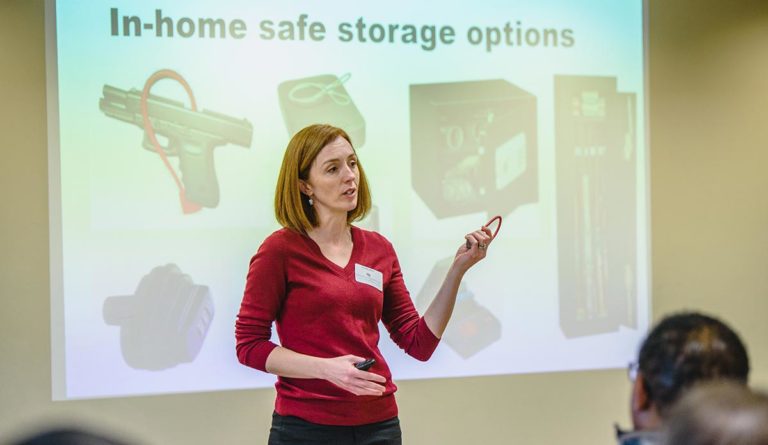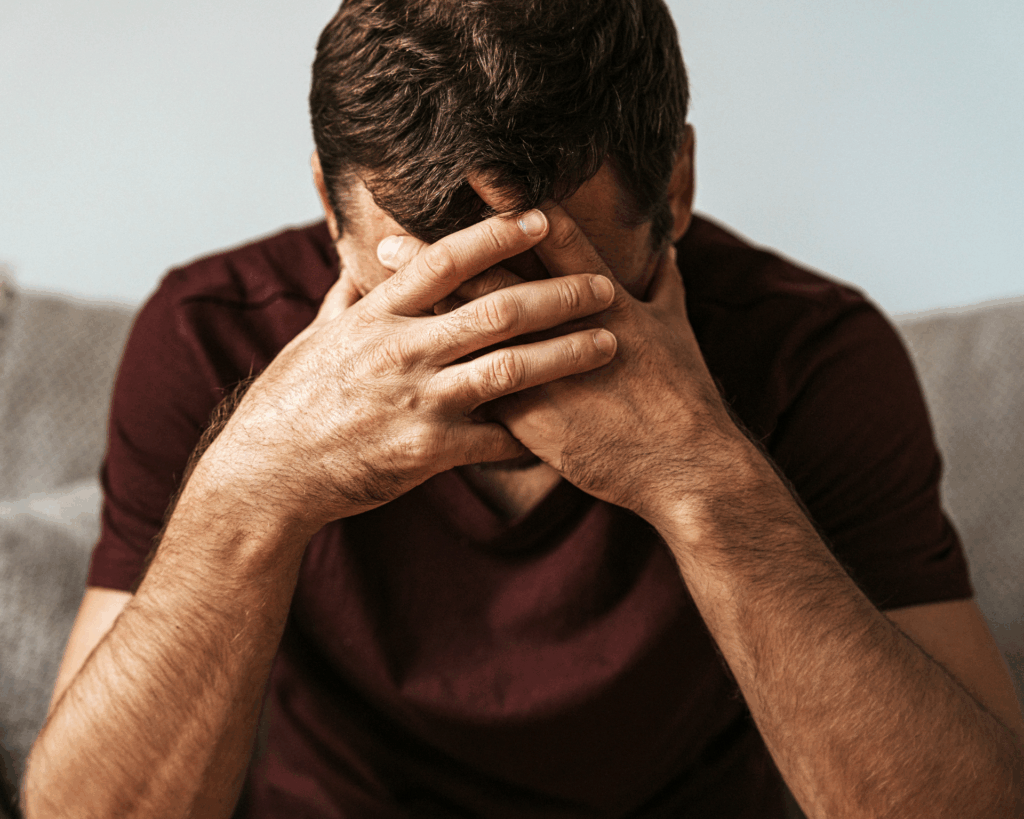Emmy Betz: Preventing Firearm Suicides
Emergency room physician Emmy Betz treats at least one patient struggling with thoughts of suicide by the end of nearly every shift. She works to educate the general public about suicide prevention and firearm safety.

Read Time: 4 minutes
Published:
By the end of almost every one of her shifts at the University of Colorado Hospital, emergency room physician Emmy Betz treats at least one patient who is struggling with thoughts of suicide.
Yet for the nearly 44,965 people who die by suicide in the United States every year, most don’t live long enough to make it to the ER, and more than half of these individuals kill themselves using guns. Despite these statistics, suicide is often left out of broader discussions on firearm violence.
“Every death clearly is very important,” Betz says. “But when you look at the magnitude of things like mass shootings or accidental childhood shootings compared to suicides, the numbers aren’t even close. That felt frustrating to me, because it feels like that it is somehow implying that those suicide deaths didn’t matter as much and they really do.”
Outside of the ER, Betz devotes her time to public health research and advocacy. She and her colleagues have noted several gaps in hospital and community services: many patients who visit the ER with thoughts of suicide don’t receive information on reducing access to dangerous items around the house, such as guns, medications, or rope. In another study, her group found that gun retailers appear willing to offer temporary storage if a gun owner or family member is experiencing suicidal thoughts, but more research needs to look at how to engage these groups in public health efforts and address potential barriers.
“You don’t want to have outsiders marching into any kind of community and saying, ‘This is what we’re going to do,’” Betz notes. “You need to have that grassroots buy-in.”
To improve communication between different groups, Betz co-founded the Colorado Firearm Safety Coalition in late 2015. The coalition brings together public health researchers and owners of gun shops and shooting ranges to discuss suicide prevention—a topic particularly relevant in Mountain West states, which have high rates of gun ownership and almost double the rate of suicide deaths compared to other states. The coalition is modeled after the work of Harvard researcher Catherine Barber of the Means Matter Campaign and the New Hampshire Firearm Safety Coalition. These programs emphasize the importance of choosing a trusted messenger to convey gun-relevant suicide prevention information.
“You don’t want to have outsiders marching into any kind of community and saying, ‘This is what we’re going to do,’” Betz notes. “You need to have that grassroots buy-in.”
During events, members discuss safe storage or locking devices. Although research supports these safety options to prevent unintentional shootings and suicides, a recent report published in the Journal of Urban Health found that 4.6 million U.S. children are living in homes with at least one firearm stored loaded and unlocked—more than twice the number reported in 2002. Betz argues that public health researchers, physicians, and gun shops can do more together to educate families on gun safety.
At “Ladies Nights,” women receive training to recognize signs if a partner or teen is at risk of suicide and dispel misconceptions about suicide. Betz notes that suicide attempts are often impulsive and, of those who survive, most don’t attempt suicide again. With guns, “there’s no second chance.”
Coalition members don’t agree on solutions all the time, but Betz believes that working with the group has challenged her to better understand diverse viewpoints.
“This has been really a great way for us to learn from them, and for them to learn from us, to realize people in public health aren’t all…interested in baby-proofing the whole world and taking away everything dangerous and so forth,” she says. “And on the flipside, of course, people who own and sell guns don’t want family members to die. The reason many people own guns is to protect their family, so the messages around safety and protecting your community really resonate.”
Feature image: courtesy of Emmy Betz
If you are having thoughts of suicide, call the National Suicide Prevention Lifeline at 1-800-273-8255 or visit suicidepreventionlifeline.org.



